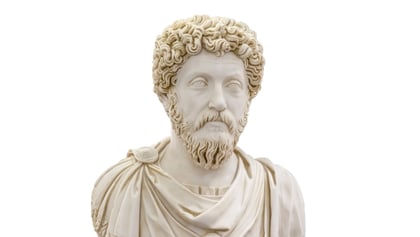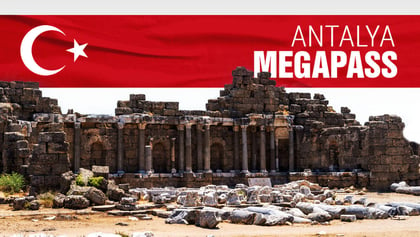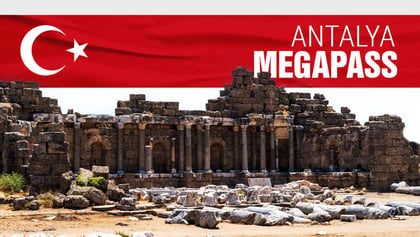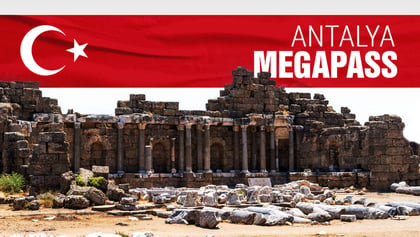Ephesus Ancient City Skip-the-Ticket-Line Ticket
Ephesus Ancient City Skip-the-Ticket-Line Ticket
返金不可の予約
チケット売り場の列をスキップ
カスタマーサポート
Discover Ephesus, an ancient city on Turkey's western coast. Walk through streets where St. Paul preached and explore remarkable ruins, including the Grand Theatre, the Library of Celsus, and the Temple of Artemis.
このアクティビティについて
有効日数:
1
音声ガイド
English
Ticket
Bestseller Ticket
ハイライト
- Grand Theatre: One of the largest ancient theatres, with a capacity of 25,000 spectators.
- Library of Celsus: An architectural marvel and one of the most famous buildings of Ephesus.
- Temple of Artemis: Once one of the Seven Wonders of the Ancient World.
- Roman Agora: The bustling city square that served as the commercial hub.
- Christian Heritage: Key site in the expansion of Christianity, where St. Paul launched many missions.
- Civic Buildings: Includes the Prytaneion, Odeum, bathhouses, and public latrines.
説明
含まれるもの
- Ephesus Ancient City Entrance Ticket
- Ephesus Experience Museum
仕組み
- Opening Hours: 08:00 - 18:30 daily
- Location: Efes Harabeleri, 35920 Selçuk/İzmir
- Same-Day Purchase: When you buy a ticket for the same day, it will be sent to your email immediately, allowing you to use it right away.
- Future Date Purchase: If your purchase is for a future date, since tickets have expiration dates, you will receive them the day before your scheduled visit.
- Your tickets are valid throughout the opening hours.
- If you have purchased the audio guide, please ensure your smartphone is fully charged and that you have your headphones with you.
- Kindly download the audio guide onto your phone in advance.
サービス日を選択
サービス時間を選択
オプションを選択
最大で予約可能
予約ごと
キャンセルポリシー:
- 返金不可
選択済み
人数を選択
合計金額
€0.00
レビューを書く
エラーメッセージ
メッセージ
© 2026, MegaPass
%5 セール









The Ephesus Archaeological Site, located on the western coast of Asia Minor (modern-day Turkey), is one of the most significant ancient cities in the Mediterranean world. Founded as a Greek settlement on the Aegean Sea, Ephesus later became the capital of Roman Asia. The city played a crucial role in East-West trade, with its harbour serving as a major point for exporting goods to the ancient world.
Ephesus boasts a rich history dating back to 6,000 BC, with its earliest settlements established during the Bronze Age. The Greeks colonized the area around 700 BC, and over time, the city came under the control of various conquerors, including the Persians and Greeks. During the Roman Republic, Ephesus was designated a 'free' city, allowing it to mint its own coins and operate its city council, despite being under Roman rule.
Under Roman imperial rule, Ephesus became the capital of the province of Asia. Reforms by Emperor Augustus (r. 27 BC - 14 AD) significantly boosted the city's economy, initiating a period of peace and prosperity that lasted until the third century AD. During this time, many of the city's most impressive ruins were constructed, including the Prytaneion (town-hall), the hippodrome stadium, and new aqueduct lines.
The city's civic development continued on a grand scale throughout the Pax Romana, a period of stability and prosperity that spanned from Augustus to 180 AD. The renowned Grand Theatre, capable of seating 25,000 spectators, was renovated, and new structures like the Odeum, Library of Celsus, bathhouses, and public latrines were built. The Agora, or city square, served as the center of Ephesus's business district, bustling with trade from across the Empire.
Grand Theatre: One of the most iconic structures in Ephesus, the Grand Theatre could accommodate up to 25,000 people. It was used for theatrical performances, political meetings, and gladiatorial contests.
Library of Celsus: The Library of Celsus, completed in 117 AD, is one of the most beautiful and well-preserved structures of the ancient world. Built to honor the Roman Senator Celsus, it once housed thousands of scrolls and served as a monumental tomb for Celsus.
Temple of Artemis: The Temple of Artemis, also known as Artemision, was one of the Seven Wonders of the Ancient World. Although only a few columns remain today, it once stood as a grand testament to the city's religious significance.
Roman Agora: The Agora, or marketplace, was the heart of Ephesus's commercial activity. Constructed during the reign of Tiberius (r. 14-37 AD), it was surrounded by a two-story stoa that housed merchant stalls. The Agora was supplied by the city's harbour, which facilitated trade from the eastern provinces and beyond.
Christian Heritage: Ephesus is also notable for its role in the spread of Christianity. St. Paul preached here, launching many of his missions from this city. The city's Christian heritage is a significant aspect of its historical legacy.
Civic Buildings: Visitors can explore various civic buildings, including the Prytaneion, where the sacred fire of the city burned, and the Odeum, a smaller theatre used for city council meetings and musical performances. The site also features well-preserved bathhouses and public latrines, showcasing the advanced infrastructure of the ancient city.
While You Are Here: Nearby, the village of Şirince, located in the Selçuk district, is worth a visit. Settled in 1923 by Turks who migrated from Greece after the population exchange, Şirince is known for its winemaking, viticulture, and olive cultivation. The village's charming architecture, featuring old Greek houses now serving as hostels, adds to its touristic appeal.
Exploring Ephesus provides a comprehensive look into ancient life, from its commercial achievements to its religious and cultural significance. Whether you're fascinated by ancient history, early Christianity, or impressive architectural ruins, Ephesus offers an unforgettable journey into the past.